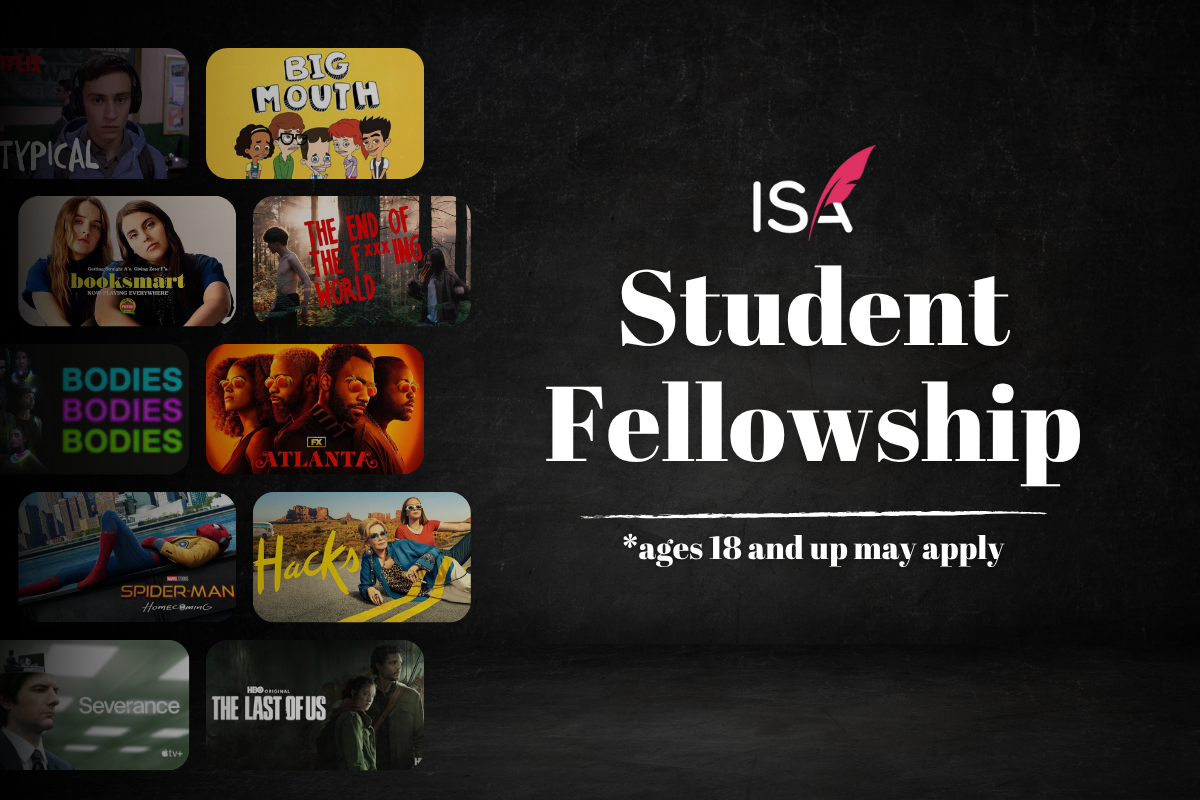How I Hijacked Hollywood or: How To Sell A Screenplay
Screenwriter Zack Ford provides a comical look behind-the-scenes on how he sold his spec script WATCHER to Hollywood.
On a hot spring day in 2013, I exited the Kips Bay brownstone in Manhattan where I lived in a rent-controlled studio apartment with my girlfriend and a white cat, walked west to 5th Avenue and then south to 23rd Street, to one of the few remaining Radio Shacks in history. Here, I bought an item just as outré as the store itself: an answering machine for a landline telephone. I had a plan to hack Hollywood.
I sat in cafes in the orbit of Union Square and brainstormed names for my phony management company – which would, essentially, be a phone. The primary qualification was that it must sound strong and uncontestable to the assistants answering my calls. It needed to command authority by means of hard consonants, to strike eardrums like a war drum. I sketched a grinning skull on a pike and I came up with “Barbaric Media”. After all, this was a takeover. Like a barbarian, I was going to raid them – then sell to them.
I’d grown up on stories of Hollywood in the 1990s. Back then, cold calls worked, and pitches written on the backs of martini-splotched cocktail napkins were sold for hundreds of thousands of dollars. But the gold rush was over, and spec screenplays were now nearly impossible to sell.
I’d written my first screenplay when I was 12. It was called Hospital, about a group of miscreants who take hostage the President of the United States after he’s airlifted to Walter Reed. Then, I kept writing – two or three screenplays a year. At 16, I entered the Nicholl Screenwriting Fellowship competition with a script called Things Left Unsaid in Pittsburgh, and it reached the top 16%.
I considered screenwriting a holy calling. I’m not kidding. The first time I saw 12-point Courier words on a page, I was only 6. The drama teacher at my school had formatted our school play like a movie script. The words swam on the page in front of me, and I had a deep recognition, like a young boy shown a test of objects having belonged to a previous Lama. And, I chose.
I attended the Dramatic Writing program at NYU’s Tisch School of the Arts. Two weeks after graduation, I sold a feature screenplay to Norman Twain Productions – who’d produced Morgan Freeman’s Lean On Me. The spec was called Scribbleface, and I’d written it as my thesis project. Yet these auspicious beginnings soon soured.
There were rewrites.
What was a story about a vengeful supernatural entity, at the behest of the producers, became a grounded thriller called Sweet Sixteen. The poster was to feature a birthday cake, blood oozing from the frosting. Then, in an effort to cash in on the coattails of the “torture porn” genre – films like Saw and Hostel had recently made a killing at the box office – there was another page-one rewrite, and the script was retitled Scar. The campy fun of the original script was lost. I did nearly 60 revisions over 18 months. When the producers flew in a tech crew from Japan, Scar became Scar 3D. It hit #1 in Russia and outsold the Hannah Montana movie in Finland. Although the film held the historical distinction of being the first stereoscopic 3D film to ever be released theatrically, it also garnered another distinction as one of the few films to ever receive a 0% on Rotten Tomatoes. It crushed my budding career.
Then, in 2007, the economy crashed and the WGA went on strike. Weary of the rebel writers, Hollywood cranked up its drawbridges. My agent at CAA dumped me. I was now a produced screenwriter with an NYU degree, unable to get a meeting. As I said, the gold rush was over. Now, no one would take a call from a screenwriter without representation.
As struggling writers do, I went into advertising. I worked as a copywriter at Grey Worldwide. I was hired sans portfolio, because they wanted to bring fresh perspectives to their accounts by hiring outside the usual pool. What they got, was someone who sat at his desk writing screenplays and playing Pac-Man until he was fired.
And I kept writing. Even when I had no money for a new computer, and the cooling fan in my laptop broke and I had to set it on two blue plastic icepacks while I wrote, holding my arms up off the desk to reach the keyboard, I kept writing. Perhaps what I thought was a holy calling was a self-destructive obsession.
A friend optioned a spec I wrote, perhaps to be kind. It paid the rent for a month. There is a photo of me from these days, sitting at my IKEA desk in my underwear, my head in the crook of my elbow and my arm outstretched across the desk, a pen in my hand that seems to lead me towards doom like the phantasm dagger in Macbeth.
Like that dagger, it did lead me into a plot: it led me to Radio Shack, where I bought the answering machine.
I had a new screenplay called North/South/East/West, about a suburban woman’s sexual awakening. I looked up at my bookshelf and smashed the first two names I saw together into my first nom de plume – Stanley Cooper. I typed the name on the title page. Then, I made my first call while pretending to be a manager. To my astonishment, it worked even better than I had anticipated. Though this was the first time I’d uttered the words Barbaric Media aloud, these Hollywood bigwigs pretended like they’d heard of it before. Soon, my lying became as glib as theirs. I leaned into the role of playing a manager – the less patience I had, the more churlish my tone, the more respect they granted me.
The assistants put me right through to the producers and executives. Just as I’d intended, the hard consonants stunned them and their bosses into submission, and they heard me out. I’d tell them I’d discovered a new talent, and he’d just written his first screenplay, and my company Barbaric had signed him, and I was giving them the opportunity to read Stanley Cooper’s new work. They only accepted submissions from agents or managers – and because I was one of those, as far as they knew, they told me to send them Stanley’s work straight away, and I did.
At one point I’d even tricked Tony Kaye, who directed American History X, into reading Stanley Cooper’s work. He allowed me to use his name as an attachment to shop the script. I got the script to Mena Suvari’s manager, and he allowed me to use her name as an attachment – since, after all, the auteur Tony Kaye was aboard. Then I got Tony on the phone with Peter Dinklage, whose manager told me he was a fan of Tony. But no one would produce the film, and though my plan had opened doors, the rejection continued.
Stanley got a few meetings, but Stanley couldn’t attend them because Stanley didn’t exist. If the meetings were in Los Angeles, Stanley lived in New York – if they were in New York, Stanley was based on the west coast. And if a company had offices in both cities, Stanley was an eccentric who lived on a ranch in Montana. Stanley wrote another spec titled All My Pretty Ones, but after that too was rejected from the two-dozen production companies who were now taking my calls, it was time to put Stanley out to pasture. Good thing he had a ranch in Montana. So, I looked up at my bookshelf and smashed together another fake name and repeated the jig all over again – David Lee was my newly discovered talent – and because Stanley’s writing had been good enough, my newfound contacts were all happy to read David’s thriller called The Family Next Door.
For several years I worked in a barbaric frenzy: writing new screenplays, calling, sending, waiting, fretting, failing to make a sale, and repeating it all over again.
Matt O. Goldberg wrote a spec called Wolfhatten, about werewolves overrunning Manhattan. Judah Silverman wrote one called Hypnotopia, about a teenage villain who creates a cult via hypnosis. Lucy Perry wrote one called The Dennisons, about a family of misfits, and turned in a treatment called Vampire Shootout – Dracula plus acid Western. David Birch wrote a tragic love story called Love Without Roses. Jess Bier wrote one called The Shaman, about a manipulative high school student. I even had a novelist in my stable – Benjamin Banner wrote a book called Orientation, about the estranged relationship between a father and his son. Another Benjamin, Benjamin Day, wrote a spec called The Child, about a serial killer who abducts an infant born amidst the wreckage of a car accident. Thomas Orton wrote a found-footage horror spec called The Farm. And on, and on. My meticulous, single-spaced call sheet burgeoned to over 130 pages as I logged each call, call-back, missed call, message, email, and rejection.
Ironically enough, I even took on a real client, my friend Henry Miller (whose name, even more ironically, was on a single binding on my bookshelf). Henry, who had directed a film called Anamorph starring Willem DaFoe, was also out of work. I bought DVD copies of his movie, as many as I could, from eBay, from a Blockbuster in Greenwich Village that was about to shutter, and I mailed them to producers. Of course, the producers usually “loved” Henry, just as they had “loved” some of my other clients, but no one actually hired him.
But I kept going, because there were glimmers of hope. Thomas Orton had written a script called The Scourge, and I was told that John Carpenter had interest in it, but when I – ahem, Thomas – wrote a revision, the interest was lost.
It occurred to me that perhaps I had created Barbaric as a Rube Goldberg machine to keep myself going – I may have given up without it.
The occasional kind words I received from producers were crusts of bread and sips of water that kept me on my path. I was told to “keep them coming”. That they would “love to read more scripts” from Lucy. That a certain script was “ballsy and necessary”, even if it wasn’t for them. I was promised by a producer that one day I would “crack his code”. One script was deemed “one of the more original and bold scripts” that a particular producer had read. But how could these words be true, yet success be so elusive?
It was now 2016. I’d traded girlfriends, moved apartments, and was in an airport in Panama en route to drink ayahuasca in Peru – running away, I suppose – when I got a phone call. It turned out that one of my writers, Carl Young (not the psychiatrist, ha) had written a spec called The Watcher and the caller, Kailey Marsh, wanted to place it on her infamous Blood List. I assented and hung up quickly because my plane was boarding. After two weeks in the Amazon, where I endured a 200-foot python expressing its disappointment at my furtive plans to break my rice-and-plantain fast with an In’N’Out double-cheeseburger, I emerged from the jungle to find that I now had Hollywood representation. UTA signed me, Gotham Group signed me, and I had optioned The Watcher. On the phone, my new agent Charlie Ferraro chuckled when I revealed myself as the true writer, and the vaporware of Barbaric Media was no more.
Nota bene: I had not yet sold the screenplay – I had optioned it.
There were rewrites.
I flew to Los Angeles to meet the director, Chloe Okuno, and more producers were added to the mix. When the option lapsed a year later, I optioned it to the same producers a second time. When that option lapsed, I once again optioned it to them a third time.
Two years later, it was 2019, and financing had yet to be secured. I had traded managers, from Gotham Group to Novo, and traded girlfriends again, too. While spending Thanksgiving in Missouri, my mom called to tell me my white cat had a dark spot on an x-ray. My girlfriend drove me to the airport in St. Louis. The next day I held my cat in my arms at the Cornell Companion Animal Hospital, and they put her down – my companion who had sat beside my Radio Shack answering machine for so many calls. I went out to Los Angeles to stay with my girlfriend in Venice Beach, and she dumped me on Valentine’s Day, after I’d bought us matching underwear. So, I came back to the east coast, where I continued to wait for my screenplay to go into production.
I was now single, I was 37, and I was sleeping in the guest bedroom of my parents’ house, on an air-mattress. Ever the eternal optimist, I considered that air-mattress a slightly less luxurious waterbed. Without much distraction, I continued to write.
And then one day, a producer on The Watcher sent me a press release, then another, from Variety, and then The Hollywood Reporter, and then Deadline. It was official. The Watcher was going into production. I had succeeded, and the purchase-price clause in my option agreement would soon be triggered.
Nota bene: I had not yet sold the screenplay.
A few days later, the coronavirus got its own press releases, the pandemic ensued, and like many projects in Hollywood, The Watcher was indefinitely delayed.
So, I kept writing. What else was there to do? Now under the authorship of my own name, I co-wrote a script called The Mountain with Ben Pitts (also a real name). I wrote a page-one rewrite of a script I’d written in 2016 called The Endorsement, and a horror spec called In The Flesh. I wrote one called The Rage. I wrote a ghost story called Wee Willy Winkie. And I waited for another year, until the third option agreement on The Watcher expired. Biden was elected, vaccines reached 95% efficacy, the Dow historically crossed 30,000, the falsehood of American normalcy promised to return, my agent’s assistant sent me an addendum to sign, and on my 38th birthday, several years after I’d actually written The Watcher, a rather sizable check was sent via direct deposit to my bank account, easy as pie.
So, if you wanted to know, I guess that’s how to sell a screenplay.







